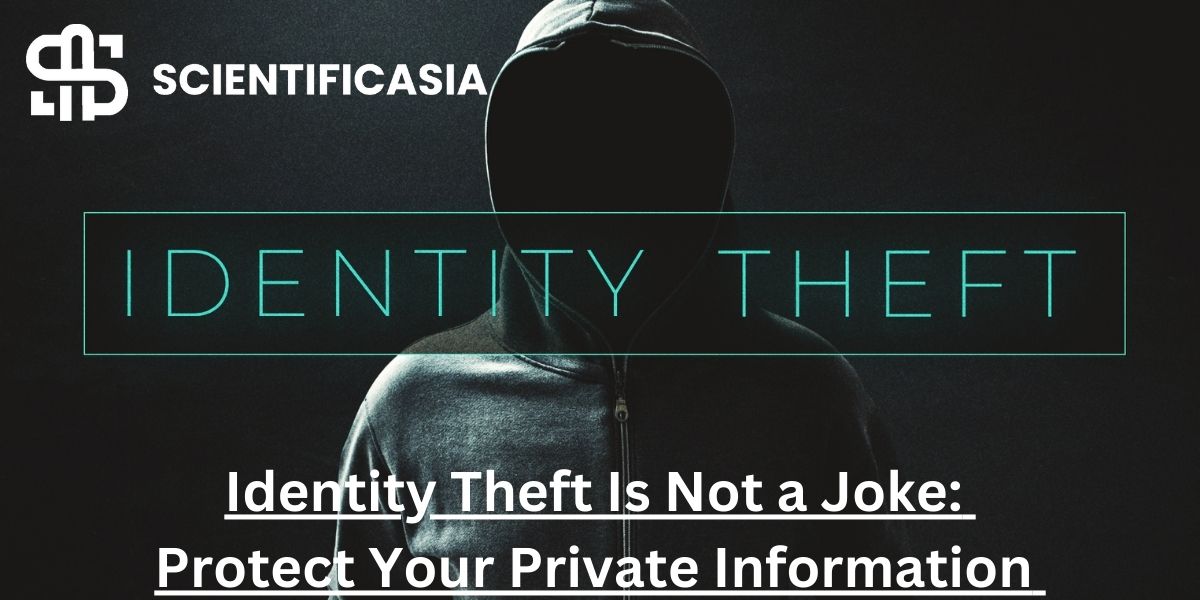Identity theft poses a severe risk to your confidential information. Learn crucial techniques to protect your private data online and stay safe from this expanding cybercrime.
As Dwight Schrute famously said, “Jim, identity theft is not a joke!” Even though this line from The Office seems funny, identity theft is not a funny thing in real life. It’s more important than ever to protect your sensitive information online in the modern digital world. The alarming numbers show how serious the issue is—identity theft is on the rise.
Let’s examine seven doable measures to protect your digital identity as we delve into the sobering realities of identity theft.
The Sordid Truth About Identity Theft
Identity theft can have disastrous repercussions; it’s not simply a small annoyance.
The Federal Trade Commission (FTC) received over 2.8 million allegations of identity theft in 2021 alone—a significant increase over prior years. These are more than just screen numbers. They stand for shattered lives, empty bank accounts, and an enduring feeling of vulnerability.
Victims of identity theft may occasionally have to replace all of their credit cards or suffer significant financial losses. However, if you take these easy precautions, stopping identity theft in this way shouldn’t be too tough.
7 Doable Steps to Protect Your Online Persona
Robust and Distinct Passwords:
The average individual has over 100 passwords, and since most of us don’t want to forget them, we frequently use the same ones.
Still, that’s the incorrect approach:
Make use of trustworthy password management software that can create and save intricate, one-of-a-kind passwords for every account.
Update passwords frequently, and stay away from popular selections like “password123.” Use these strong password ideas to learn how to create an uncrackable password that keeps hackers at bay.
Authentication using two factors (2FA)
Microsoft stated in 2019 that users who activated 2FA successfully prevented approximately 99.9% of automated assaults. Although the procedure may initially seem bothersome, it does help customers safeguard their accounts.
For further security, use authentication applications or get one-time passcodes via SMS.
How to Spot Phishing Attempts
Phishing attempts are fraudulent actions in which attackers assume the identity of trustworthy organisations in an attempt to deceive victims into divulging personal data, including Social Security numbers, credit card numbers, and passwords.
Phishing was a factor in 32% of breaches in 2023, according to Verizon’s Data Breach Investigations Report. Unsolicited communications should always be regarded with caution, especially if they demand personal information or demand quick action.
To view where links lead, hover over them without clicking. If in doubt, get in touch with the organisation directly using the above contact details.
The Value of Continual Software Updates
Make sure you don’t ignore the update prompts and that you update your devices regularly. Sixty percent of security breaches involved vulnerabilities for which there was a fix but it was not applied.
Automate updates as a quick fix. Make sure the auto-update feature is enabled on your devices.
Secure Public Networks with VPNs
Cybercriminals can make their playground out of public Wi-Fi. By encrypting your data, VPNs reduce your vulnerability. Use a VPN when accessing public networks, or stay away from them completely if it’s not an emergency.
Whenever you use public networks frequently, spend money on reliable VPN services.
Keeping an eye on breach alerts
Did you know that over 155.8 million records were exposed in 1,291 documented data breaches in the United States in 2021?
Remain vigilant: Utilise resources such as “Have I Been Pwned” to receive alerts when your information appears in any breaches.
Preserving Confidential Information
Using easily accessible personal information is not something you should do. It’s not truly your personal information, for instance, if you post about your pet dog, “Betty,” everywhere you go. By giving such responses to security questions, you can be giving hackers exactly what they need.
Conclusion
In conclusion, identity theft is a severe worry, even though Dwight Schrute’s lighthearted statement from The Office could make you smile. In the linked world of today, safeguarding your digital identity is essential and should not be taken lightly. You can prevent identity theft and its disastrous effects by following these seven actions and remaining informed.
But keep in mind In significant part, you are accountable for your online safety. You are in control of your digital security if you use a strong password, enable 2FA, and keep an eye out for phishing scams.
If you’d like an extra degree of protection, this platform provides sophisticated identity verification solutions designed to meet contemporary needs. Together, let’s make the internet a safer place.














